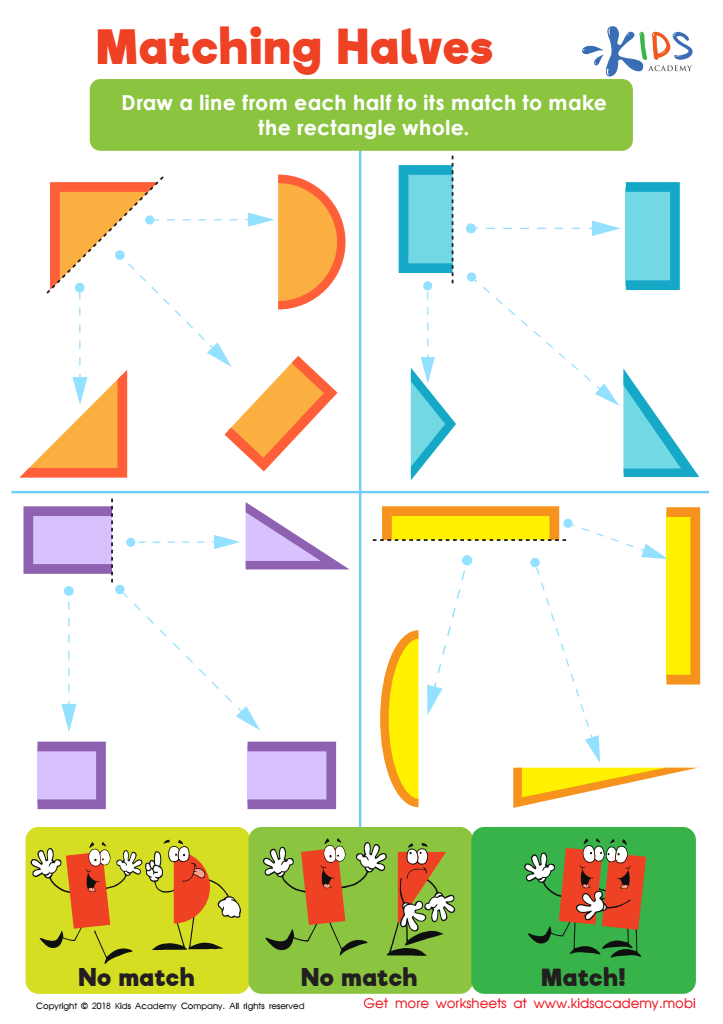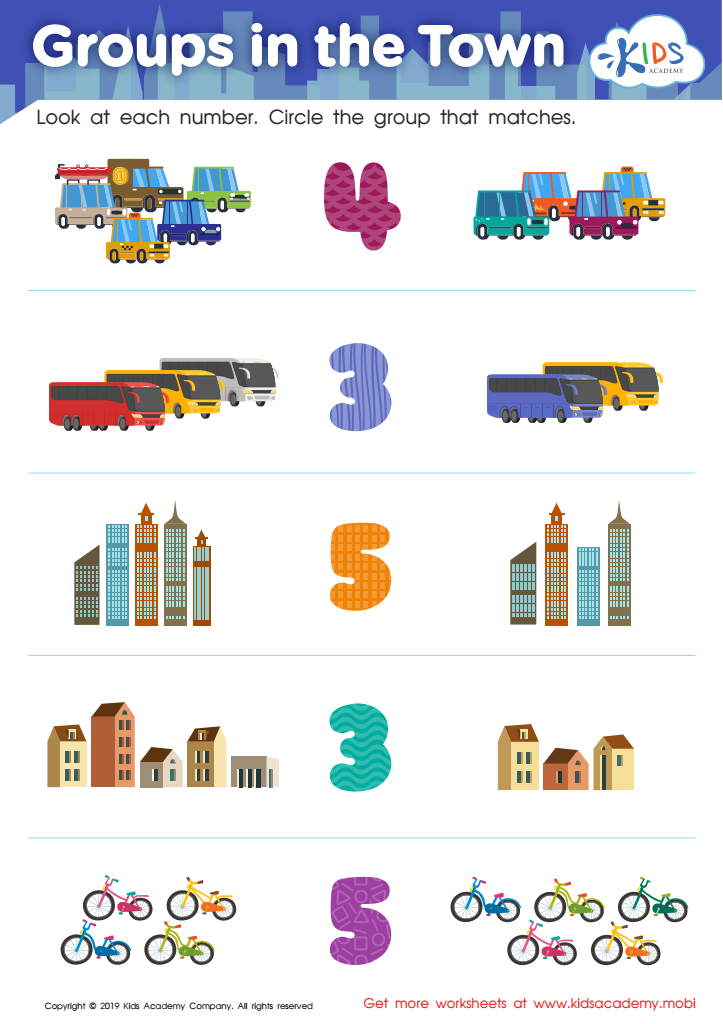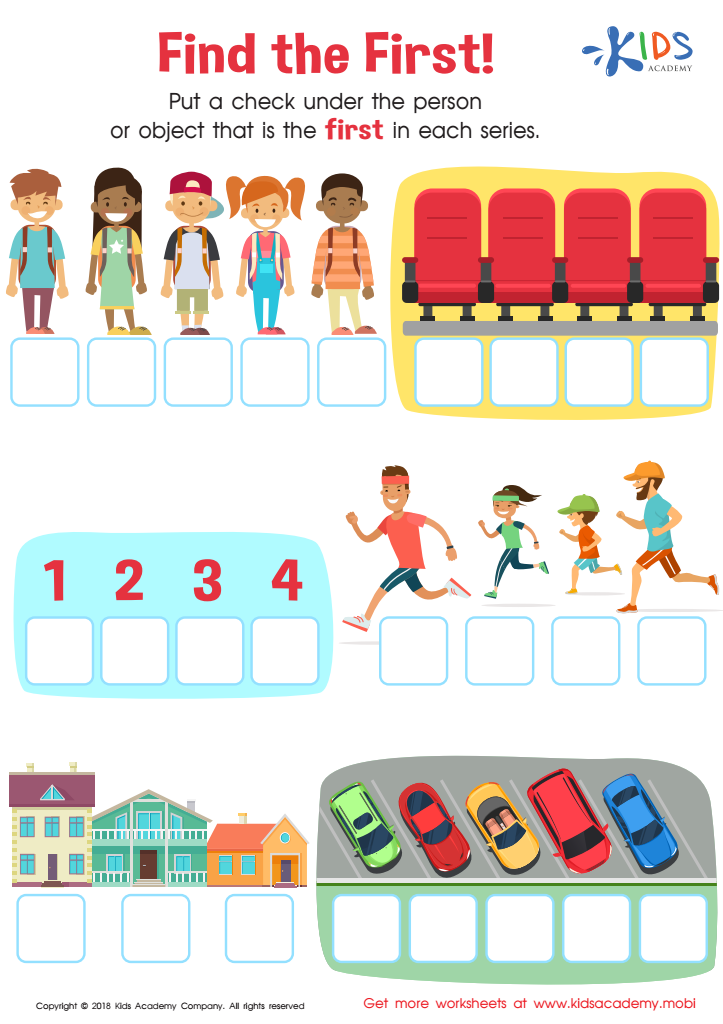Visual discrimination skills Easy Math Worksheets for Ages 4-7
3 filtered results
-
From - To
Enhance your child's mathematical abilities with our "Visual Discrimination Skills Easy Math Worksheets for Ages 4-7". These engaging worksheets are specifically designed to help young learners develop essential visual discrimination skills, crucial for recognizing differences in shapes, sizes, patterns, and numbers. Our fun and interactive activities not only strengthen focus and attention to detail but also build a solid foundation for early math proficiency. Perfect for preschoolers and early elementary students, these educational resources make learning enjoyable. Discover a comprehensive collection of printable worksheets at Kids Academy and give your child a head start in math today!


Matching Halves Worksheet


Groups in the Town Worksheet


Find the First! Worksheet
Visual discrimination skills are pivotal for children aged 4-7 as they form the foundation for early learning, particularly in subjects like math. These skills involve the ability to notice, compare, and differentiate between different shapes, symbols, patterns, and objects. In the context of early mathematics, visual discrimination is crucial for recognizing numbers, understanding geometric shapes, and identifying patterns—all essential components of math literacy.
When children enhance their visual discrimination skills, they improve their ability to distinguish between similar numbers, which helps prevent errors in reading and writing digits like 6 and 9 or 3 and 8. This skill set also aids in comprehending spatial relationships, such as understanding that different shapes can occupy the same amount of space or recognizing symmetrical patterns. Additionally, visual discrimination supports problem-solving by allowing children to categorize and sort objects, a fundamental math activity.
Improving these skills at an early age sets a solid groundwork for more advanced mathematical concepts, fostering a more robust and intuitive understanding of mathematics. By emphasizing visual discrimination skills, parents and teachers can create more effective and enriching learning environments, ensuring that children are better prepared for educational challenges ahead and ultimately making math less daunting and more enjoyable.
 Assign to My Students
Assign to My Students





.jpg)















